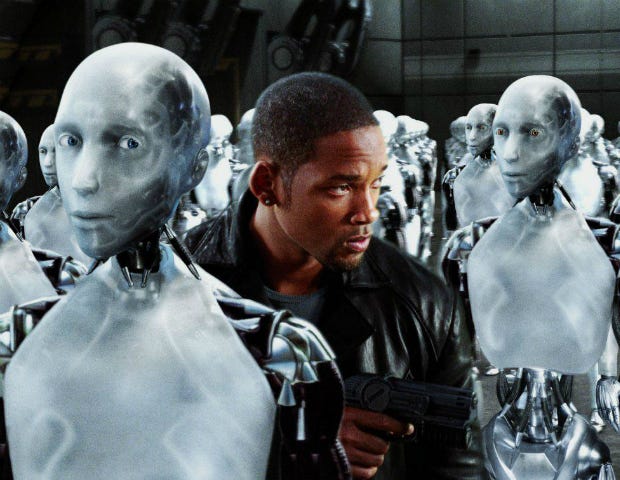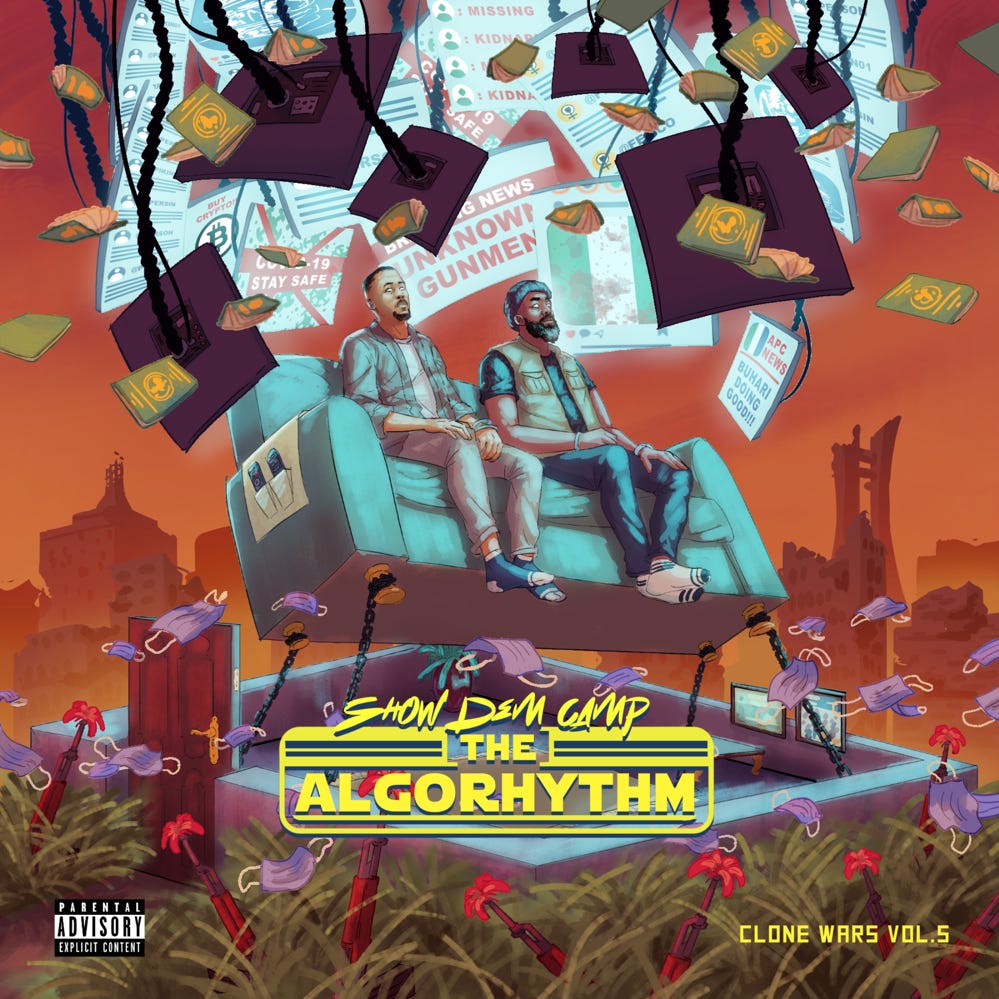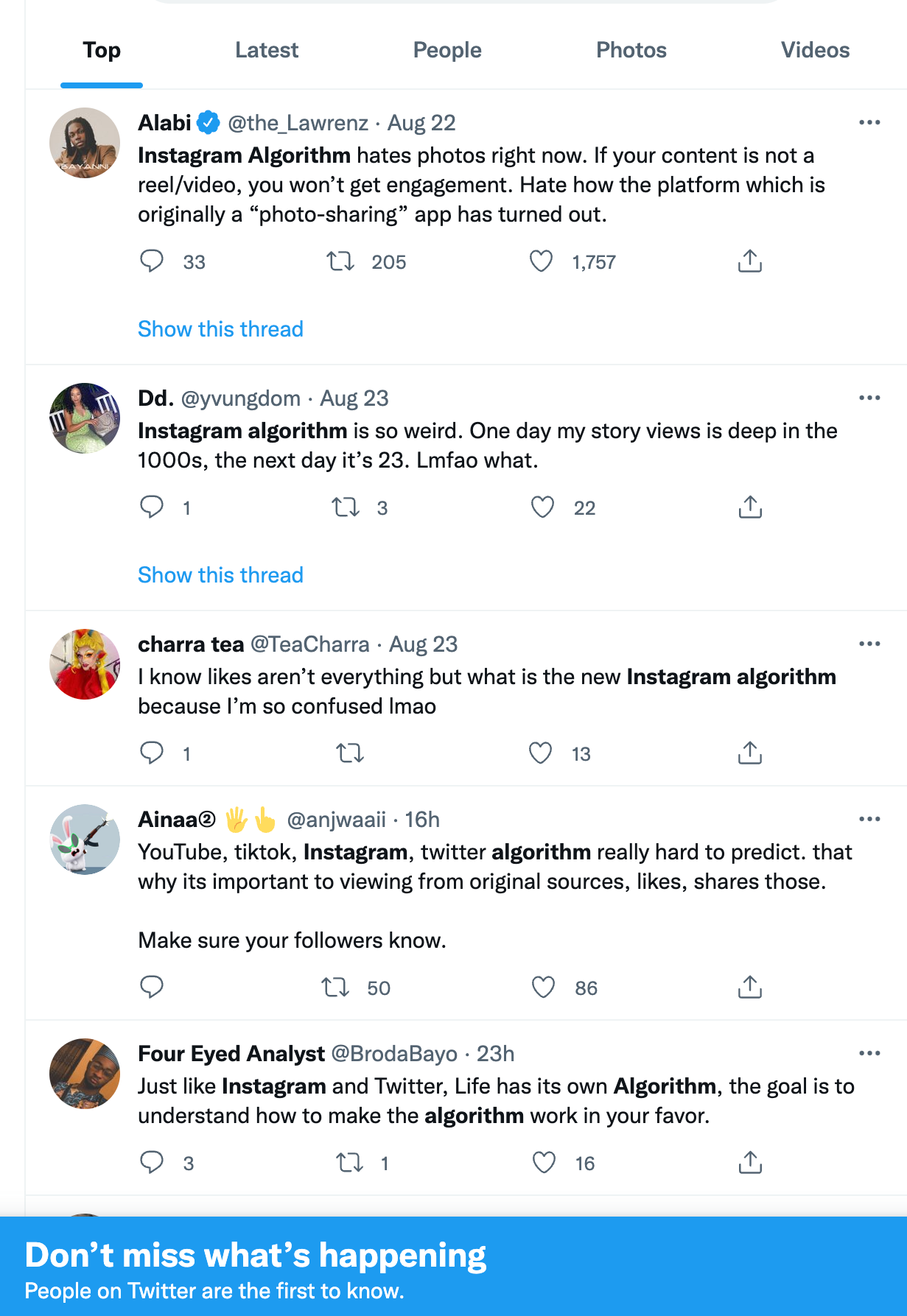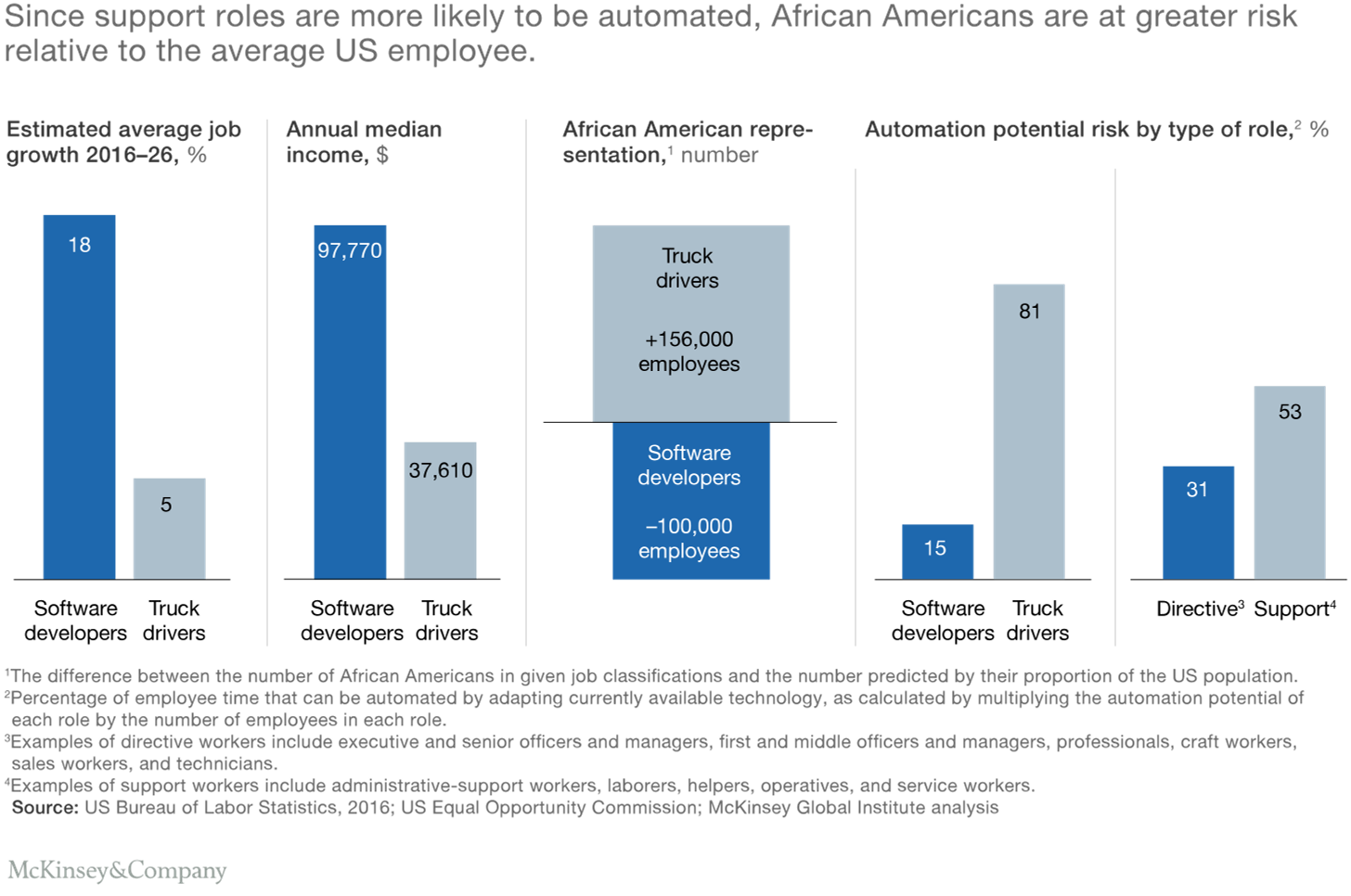Here at Spin the Block, I write about the intersection of technology, media, and human capital. One of the most impactful trends at this intersection has been the impact of artificial intelligence (‘AI’) and machine learning (‘ML’) on everything from music to corporate hiring practices and even law enforcement.
As someone who, 5 years ago, knew nothing about “technology”; and basically stumbled into becoming a technology attorney - it’s amazing to me how expansive the field is and how much misinformation is out there. I’m still learning everyday, but I truly don’t think most people realize how much the world has changed because of technology.
But when we talk about technology - what are we actually talking about?
When most people refer to “technology”, they usually mean some sort of software or hardware (i.e., ‘Microsoft Office’ or a WiFi modem); but the word technology means comes from a Greek word which means "art, skill, craft in work; or method of making or doing".
So “technology” is not just software. Any craft or skill employed to make or construct something is a technology. The training incorporated into becoming an elite athlete, teacher, doctor, or financial analyst are technologies.
That’s what excites me about this space - it’s the understanding that human craft or technology can be combined with software other emergent and traditional “technologies” in order to better protect, profit, and provide for society.
When we understand that we all are already, at our core, human technologies - the potential to enhance our productivity by partnering with machines opens up endless opportunities. A downside, however, of the partnership between humans and machines is that we run the risk of people being left behind.
MIT professor Daron Acemoglu and Boston University professor Pascual Restrepo, in their research paper “Robots and Jobs: Evidence from U.S. Labor Markets,” , found that “for every robot added per 1,000 workers in the U.S., wages decline by 0.42% and the employment-to-population ratio goes down by 0.2 percentage points — to date, this means the loss of about 400,000 jobs”.
A survey by McKinsey and Company found that “66 percent of executives see ‘addressing potential skills gaps related to automation/digitization within their workforces as at least a top-ten priority.’ As we’ll see, the impact of automatization and digitization in the workforce hits some communities harder than others.
The impact of automation and emergent AI -related technologies on the workforce has been exacerbated by the Covid 19 pandemic and the acceleration of adoption by companies looking to create cost savings. “What we’re seeing is this significant need for massive up-skilling and retraining, especially for workers who have been laid off” says Karen Fichuk, CEO of Randstad North America, in an interview with CNBC
As we’ll see, the impact of automatization and digitization in the workforce hits some communities harder than others. The purpose of this article, then, is to lay out a few of the things that interest me in this space - as well as some of the concerns that I have.
This article is an overview, and I’ll follow it up with a Part II where I’ll dive into the specific laws and regulations governing this space.
RISE OF THE ALGORITHM
When we discuss artificial intelligence and machine learning, what are we talking about? Well, there are various definitions; but in a nutshell AI is a field which includes the use of data and computer science to enable the automated use of computer - machines to solve problems.
The field of AI also includes the sub-categories of “machine learning” and “deep learning”. Machine Learning is essentially enabling computers to learn on their own, progressively building upon the data provided to it by humans; which allows for these computers to make data-educated estimates or predictions based on past data, inputs, and events. Lastly, deep learning is a subset of “machine learning methods based on artificial neural networks with representation learning”.
Imagine playing chess against a computer, the chess computer is a form of AI - it has been given data and chess strategies, and has been programmed to enable it to play against humans; acting and counteracting in a wide number of scenarios. Depending on the level of AI in the computer, the computer may even become progressively smarter the more it plays against humans - because it now has a wider range of data (past moves and strategies) by which to calculate its future moves.
Here’s another example from The Verge:
“Say you want to create a program that can recognize cats… You could try and do this the old-fashioned way by programming in explicit rules like “cats have pointy ears” and “cats are furry.” But what would the program do when you show it a picture of a tiger? Programming in every rule needed would be time-consuming, and you’d have to define all sorts of difficult concepts along the way, like “furriness” and “pointiness.” Better to let the machine teach itself. So you give it a huge collection of cat photos, and it looks through those to find its own patterns in what it sees. It connects the dots, pretty much randomly at first, but you test it over and over, keeping the best versions. And in time, it gets pretty good at saying what is and isn’t a cat.”
As business look to do what businesses do, we’re finding that AI and ML technologies enable greater efficiencies in fulfilling commercial goals. It doesn’t matter the sector, this technology is able to do more than humans - like how a calculator can calculate large numbers faster than most of us. So while many merely associate AI and ML with social media algorithms, there are a number of other current and emerging use cases.
Here are a few current use cases, but by no means an exhaustive list:
FINANCE
AI and ML technologies have transformed Wall Street and the way trades are made. AI and ML algorithms enable financial firms to spot trends and make trades faster than any human possibly could (of course, it’s a bit more complicated than this).
Michael Lewis discussed the impact of technology on finance and trading in his book ‘Flash Boys’, detailing how the use of AI and ML - while creating greater efficiencies - can lead to other problems for both businesses and consumers. Here are a couple quotes from his book:
“People no longer are responsible for what happens in the market, because computers make all the decisions”
“The markets were now run by technology, but the technologists were still treated like tools. Nobody bothered to explain the business to them, but they were forced to adapt to its demands and exposed to its failures—which was, perhaps, why there had been so many more conspicuous failures”
According to a 2020 JPMorgan study, “over 60% of trades over $10 million were executed using algorithms; and the algorithmic trading market is expected to grow by $4 billion by 2024, bringing the total volume to $19 billion”.
In 2021, the worlds largest asset manager - BlackRock - invested over $50 million in Clarity AI (an AI / ML financial technology platform which analyzes over 30,000 companies in 200 countries), and integrated it into its ‘Aladdin’ operating system.
When combined with BlackRock’s ‘Aladdin’, a risk analysis technology platform (which manages over $21 trillion in financial assets and over 30,000 investment portfolios), it undoubtedly creates powerful capabilities and insights. To simplify, think how smart a chess computer would be if it had data on the 30,000 best chess players in the world… some say that makes BlackRock’s ‘Aladdin’ more powerful than the United States government.
EDUCATION
Colleges such as Georgia State University are experimenting with AI tools and apps geared at improving the college experience for students, especially those from underrepresented backgrounds.
One such tool is a messaging system - “the messages reminded students when their assignments were due, offered study tips and practice exams, and even solicited direct feedback for the professor. . . students who received chatbot messaging were more likely to earn an A or B in the class than those who didn’t receive messages, the university found”.
My Thoughts: I see AI technology, in education, having the ability to further enable higher performance for students by anticipating areas of difficulty - but also removing some of the heavy lifting from teachers and professors by providing more data insights to efficiently provide curriculum administration.
For example, company’s like Century Tech are implementing AI tools to “create personalized learning plans and reduce workloads for instructors”. Century Tech’s AI platform “tracks student progress, identifies knowledge gaps and offers personal study recommendations and feedback”.
Additionally, given the proper inclusion of adequate data sets, AI could be used to inform teachers and professors of areas of high performance by students - providing further guidance on professions where a student may excel. For example, instead of over-focusing on the D that a student got in a science subject, AI could analyze the subjects where a student excelled (such as history, english, and communication) and theoretically provide a recommendation that that student look into government, management, and other leadership-based internship opportunities.
This is something that can be done, manually, now - but many schools and colleges do not have the bandwidth to manually and proactively reach out to every student; and many students do not reach out for this type of guidance (for various reasons) and often fall by the wayside. AI tools such as the examples given could alert schools, colleges, students, and parents on such opportunities - even providing required check in’s or affirmations of receptions in order for the student to advance.
Either way, the future is here for AI in education. The AI Education market is projected to hit $20.54 billion in 2027.
MUSIC
In June 2022, Spotify acquired ‘Sonantic’, "an AI voice platform that claims to be able to create “compelling, nuanced, and stunningly realistic voices from text”. Sonatic was recently involved in the recreation of actor, Val Kilmer’s, voice in the movie Top Gun: Maverick. An interesting point noted in that article is Spotify’s interest in exploring the audiobook space.
My Thoughts: If all goes as planned, Spotify could essentially turn all manner of books and documents into audiobooks, using Sonatic’s automated technology; providing this as an added service to its consumers - and creating an additional vertical on its platform. As I noted in this article, Spotify is looking for ways to diversify its revenue stream away from just music. This was one of the drivers in Spotify launching a podcast offering; but podcasts, as of earlier 2022, only accounted for “7% of total listening hours in the first quarter of 2022 and 2% of revenue last year”. Audiobooks have the potential to significantly increase Spotify’s “non-music” revenue - in which it’s profit margins are fixed; due in-large-part to Spotify having to pay music rights holders roughly 70% of its music revenue.
In August 2022, Capitol Records announced the signing of an AR artist ‘FN Meka’, which was created by ‘Factory New’, a virtual and digital - only talent media company. Shortly after the press release, and following backlash from many in the black community, Capitol Records announced that they had dropped ‘FN Meka’. The outrage essentially revolved around the feeling that ‘FN Meka’ was a gross stereotype, and many felt offended that white executives would sign a black AR rapper and have it use words such as “nigga” in its lyrics.
“One protest for you, 365 for me”
Kendrick Lamar, ‘Savior’
My Thoughts: the attempt to sign an “AI artist” makes sense from a commercial perspective. AI and ML technology is already being used by record labels and A&R departments; it’s called “researching”; and it’s one of the ways, if not the leading way, record labels identify rising artists and producers.
As Anthony Martini, of Factory New, mentioned: “the old model of finding talent is inefficient and unreliable. It requires spending time scouring the internet, traveling to shows, flying to meetings, expending resources all in search of the magic combination of qualities that just might translate into a superstar act”.
That said, I’m not very bullish on the use of AI characters as sustainable, long-term replacements or even alternatives to human artists. I believe there will be novel, one-off, instances where it makes sense. Think ‘Powerline’ from ‘A Goofy Movie’.
So the use of AI in creating new-age cartoons, diversifying into ancillary revenue streams such as advertising, merchandise, movie, television, and other commercial products makes sense to me. This pretty summarizes my thoughts on AI: AI is a new tool which allows us to do old things in new and more efficient ways.
The problem with ‘FN Meka’ was not the underlying technology; but the optics of the character, coupled with the record industry’s troubled past and historical relationship with the black community, and artists in general. I could go into more details here, but this is actually a good transition point.
TERMINATORS OR TRANSFORMERS?
While there is an immense amount of literature on the field of AI, it should be clear - from the few examples I’ve given - just how transformative this field is and will continue to be. According to Venture Beat, the AI as a Service’ market is estimated to “exceed $41 billion by 2025, nearly five times the size of today’s market”. The provision of AI as a Service to companies, across various industries, will create an exponential effect - further multiplying, not only the growth of the AI field; but also the transformative services and products that will be created through the use of AI.
Additionally, an analysis conducted by McKinsey & Co “found that the most advanced deep learning [a form of ML] techniques deploying artificial neural networks could account for as much as $3.5 trillion to $5.8 trillion in annual value, or 40 percent of the value created by all analytics techniques”.
That said, I’m excited about what comes out of this era; but that doesn’t come with concerns. Many have raised warnings about AI and robots becoming sentient and destroying the world - like in Terminator or the Matrix. Maybe I’m not qualified enough to speak on it, but I’m not too concerned about robots destroying humanity. If anything, I see it more of a case of what happens if you leave a plane in autopilot for too long.
Here are thoughts from someone much smarter than me in this field:
Let’s look at just one technological advance: the laser. It was invented about 50 years ago and it took up the whole room. To go from that room to the laser pointer I use when I give a lecture requires 50 years of commercialization of technology. It had to be advanced to the point where you shrink it down and buy it for five dollars. The same thing is going to happen to hyped technology like self-driving cars. It’s not expected to be ubiquitous next year or probably not 10 years. It may take 50. . . What’s wrong with the hype is that people have the timescale wrong. They’re expecting too much too soon…”
Terrence Sejnowski, Computational Neuroscientist at the Salk Institute for Biological Studies
In my opinion, technologies like AI, and ML are highly advanced calculators. They are tools meant to aid humans in our endeavors to build and create.
Africans built the pyramids without the sophisticated financial planning and engineering tools we use today. This was because of their ingenuity, creativity, and vision - all qualities humans have today; but now we have the luxury of tools which can help us build faster.
To use the recorded music industry as an example - machine learning can assist in sorting through the tens of thousands of songs uploaded to Spotify everyday in order to find the needle in the hay stack; namely, those artists and producers who are consistently generating an increasing number of streams and followers - yet may, for various reasons, be flying under the radar.
But that comes with challenges - there becomes an inevitable need to determine where those streams and followers are originating. Are they originating from real and engaged humans? are they bots? or are they sourced from paid playlists?
Additionally, what about those artists who are extremely talented, yet have not found a way to break through; but could, potentially, be the next Drake or Billie Eillish?
“I’d love to spend more time, I got so many things to do.. “
The Isley Brothers, ‘Work To Do’
My point is - there is a necessary human element to artist discovery and development, or “A&R” as it is traditionally called. Read the memoir of any notable music industry executive, and you will find that they often possessed a keen ability to spot latent genius level talent.
Would we have legends like Prince, Whitney Houston, and J Cole if their signings were wholly dependent on artificial intelligence and machine learning software tools?
Probably not.
These technologies are tools meant to complement human ability and skill, not replace them. That’s generally how I view emergent technologies. If anything, I’m more concerned about the impact these technologies will have on workplace diversity.
As technology advances, it risks leaving many behind - particularly individuals from underrepresented groups. We saw this fear play out in real time during President Donald Trump’s campaign, and the concerns he tapped into while running for President.
BLACK ROBOTS
In Capitol Records’ statement announcing the release of ‘FN Meka’, they said:
“CMG has severed ties with the FN Meka project, effective immediately,” the label noted in a statement. “We offer our deepest apologies to the Black community for our insensitivity in signing this project without asking enough questions about equity and the creative process behind it.”
To me, it was bit ironic because the diversity rates in corporate America, the recorded music business, and silicon valley are well noted. I could include a host of stats on this subject - but they’re easily "“googleable”; and I’ve grown tired of writing this article, and I want to dive into the actually laws and regulations governing this space (See Part II).
My point here is that, regardless of the cause, if you don’t have a diverse set of stakeholders seated at the table then problems like this are inevitable. If you truly want to see different results, and release products and services that are commercially acceptable to a diverse set of people and cultures then your stakeholders have to reflect your market.
It’s common sense.
“Insanity is doing the same thing over and over and expecting a different result”
Albert Einstein
I’ll get into this in the next article as well; but this is another problem with the field of AI and ML. Not only does the lack of diversity “at the table” pose a risk; but the lack of diversity in the data can also be negatively impactful.
Take algorithmic bias, for example. An AI model creates a series of instructions “that a system has to follow to achieve a particular task, which is typically created by humans. However, if the algorithms are flawed, not optimized for edge cases, or biased, they will provide unfavorable and unreliable results and conditions.”
In other words, these AI technologies are simply machines. They are not human beings. They do not have the ability to reason like we do, to ask questions; and to open their minds and consider alternative ways of thinking like we do… at least, not yet.
AI simply does what it’s been programmed to do. If it is fed incomplete or biased data then its output will be incomplete and biased.
“If you were to ask AI ‘who will make the best general?’, it’s probably going to say say a white male from Westpoint, because that’s all that existed before”
Russell Wald, Director of Policy for Stanford’s Institute for Human-Centered Artificial Intelligence (HAI)
I’ll add that there have been generals of other ethnicities..
But, in any event, this is all coupled with the fact that as we see these diversity issues playing out in the development and commercialization of AI - due, in large part, to the lack of diverse voices at the table; and many of those would-be diverse voices are actually being left behind.
In their ‘Automation and the Future of the African American Workforce Report (2018), McKinsey & Co found - in their assessment of nearly 2,000 different detailed work activities in more than 800 occupations - “that African American workers are disproportionately concentrated in the kinds of support roles most likely to be affected. . . efforts to ease a general workforce transition into an automated future could wind up worsening existing racial disparities in income, opportunity, and wealth”
This all creates a significant problem; and the logical conclusion is that up-skilling and training, particularly for diverse candidates, should be a priority for businesses; but, as McKinsey notes, this is not always the case:
“Despite increasing evidence that inclusion and diversity are sources of competitive advantage. . . a majority of the general population are employed in directive roles, a majority of African American workers are in support roles.”
Before I close out this point - a funny, but not so funny, example is an article from Fast Company which featured a study showing that even black robots face racism - the study found that participants were more likely to shoot a black robot than a white robot.
Go figure..
MASTERS OF DESTINY
I don’t claim to have all of the solutions, but as someone who has over-indexed in many categories - one of the things I believe is the importance of having an entrepreneurial mindset. This doesn’t necessarily mean that you need to aim to start the next Facebook; but it simply means that you take extreme ownership over your life and career. I believe that life, itself, is an entrepreneurial endeavor; and that entrepreneurship is the greatest driver of self-development, wealth creation, and community transformation.
There are many great individuals and organizations doing good work across all sides of the table; but, at the end of the day, I tend to adhere to the words of Carter G. Woodson:
“History shows that it does not matter who is in power or what revolutionary forces take over the government, those who have not learned to do for themselves and have to depend solely on others never obtain any more rights or privileges in the end than they had in the beginning.”
Why? because as we’ve seen, we can’t always wait on others to do the work that we know needs to be done - the work which often impacts us the most.
For example, the issue of bias in hiring decisions has been well researched and documented, “white sounding” names are more likely to get a call back from employers than “black sounding” names, etc.; but sometimes, even companies and organizations that purport to be focused on changing these matters have the same issues as those involved.
There are many real-life stories I could tell about implicit biases in hiring; but one that comes to mind is the time I interviewed at a company whose main goal was to fix biases and increase “workplace diversity”, but.. they had no black people working at their company..
Needless to say, I didn’t get the job.
So for me, these are the kinds of things that inform my mindset. While government policy, market regulation, and corporate responsibility are all an important and vital part of the solution - I believe that one of the most underrated skillsets we humans can develop is the skill of “self-direction”, the ability to determine who we want to be, what we want to do, and where we want to go. The power of human intention and imagination cannot be understated. It is what makes us human and separates us from the animals.
We have the ability to, literally, create worlds.
“See the power of the mind is not a joke”
Drake, ‘Both’
For all its faults, what makes the United States of America great are the opportunities and freedoms afforded to its citizens and residents; opportunities and freedoms often not afforded in other countries across the globe.
And it is up to us, wherever in the world we may be, to seize control (to the best of our abilities) over our lives; and determine, for ourselves, who we want to be and where we want to go - irrespective of the apparent obstacles that may be in our way.
This is the mission of man.
Exercising intention and self-determination begins by understanding that the only things we can control in this life are: (i) our thoughts, (ii) our words, and (iii) our actions.
As it relates to advancing in our careers, and getting in place to change some of the issues discussed in this Article, Harvard Business Review gives some worthwhile tips:
Harvard Business Review - “First, track what skills the leaders in your industry are hiring for. Look at recent job postings from the top companies, and see which qualifications keep popping up. Second, reach out to people in your network or on LinkedIn who have the job you want. If you want to know what sales skills and technologies are becoming most important, talk to some high-level salespeople. Ask them what they’re having to learn to keep succeeding at their work and what skills they think someone needs to acquire in order to become a viable candidate.”
Another tip from Harvard Business Review - “…whatever field you’re studying, find opportunities to use your new skills. (In addition to increasing “stickiness,” this also gives you a chance to discover unforeseen challenges.) Depending on the skill, you might participate in a collaborative project at work, for instance, or set up your own project on a small scale at home.”
Emergent technologies like artificial intelligence, machine learning, and the data privacy field, at-large, will only increasingly expand and develop. Professionals in all fields, particularly those who are part of underrepresented groups, should pay close attention to these developments and adapt accordingly.
There’s also a lot to be concerned about for sure; but, at the end of the day..
We have to be in the game to change the game.
Elijah Adefope is a media, entertainment, and technology consultant and attorney. He is Lead Counsel at Substack, a media technology platform for creatives, and has written two books on the music and sports industries. He lives in Atlanta, Georgia and can be reached on LinkedIn or at elijah@thrivesportsent.com













